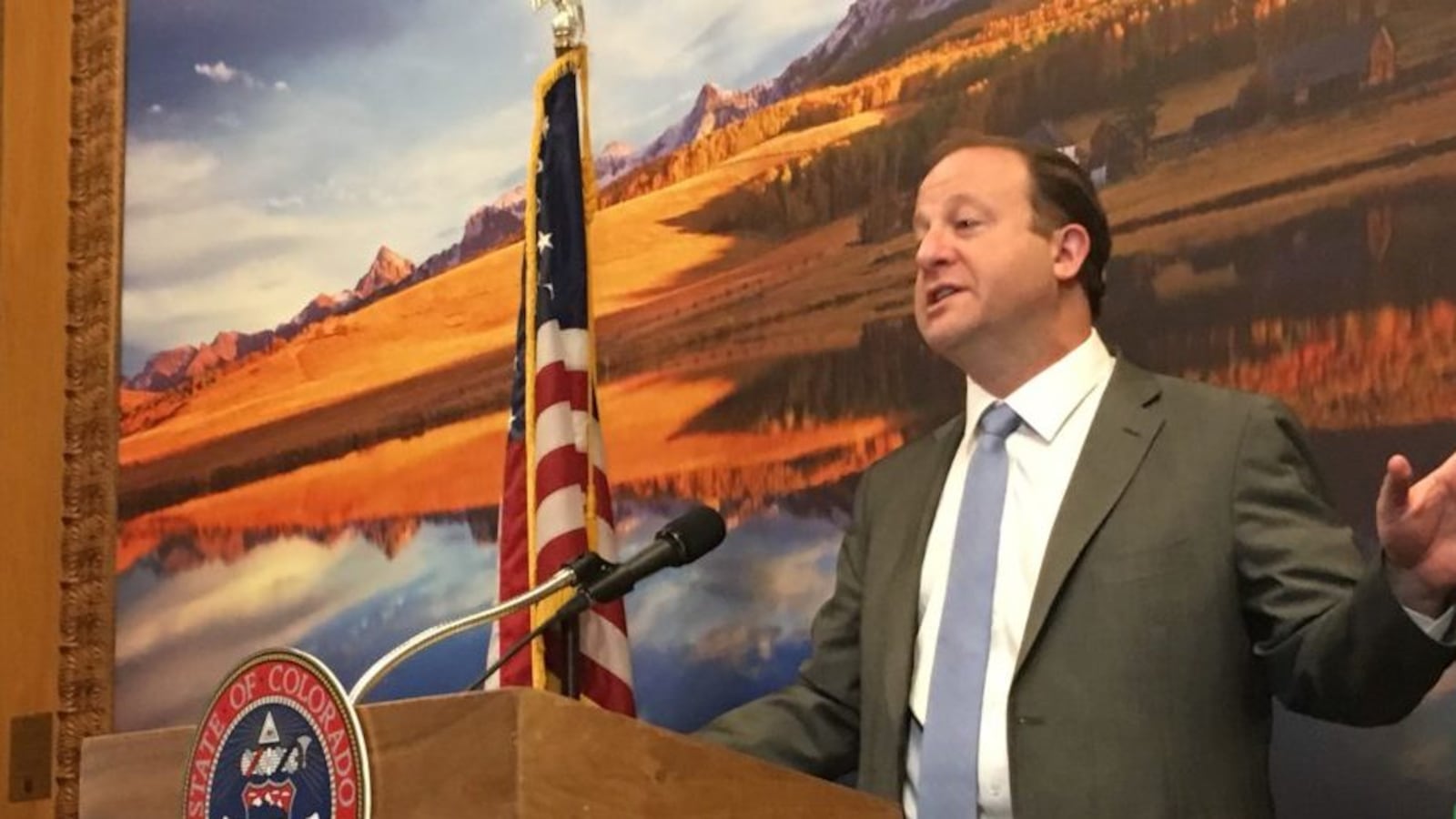Colorado’s controversial teacher evaluation system is likely to get a closer look, even if legislation to reduce the importance of test scores in that system is not successful.
Gov. Jared Polis said Monday that he expects to convene people with a range of perspectives to suggest changes so that the teacher evaluation system “works for our educators and works for our state” after the legislature adjourns.
Modifying Colorado’s teacher effectiveness law was a top priority this year for the Colorado Education Association, the state’s largest teachers union, and many school district administrators also want to see change. But legislation to do that has faced a difficult path and opposition from a range of education advocacy groups.
The original proposal would have scaled back a formal written evaluation of teachers with a history of good ratings to only once every three years, instead of every year, and reduced the portion of a teacher’s evaluation that is tied to student academic growth, often measured by test scores, from 50 percent to 30 percent.
Senate Bill 247 would not reduce the frequency of evaluations, though it still would scale back the importance of student growth. The bill also would convene a working group to recommend additional changes — but opponents raised concerns about the role that established education interests like the teachers union and the Colorado Association of School Boards would play in picking the members of that group.
Last Thursday, the Senate Education Committee postponed a vote on SB 247. The bill is up for a vote this Thursday, though it’s not clear that it will pass in its current form. State Sen. Tammy Story, a Conifer Democrat and the primary sponsor of the bill, could not be reached Monday afternoon.
State Sen. Jeff Bridges, a Greenwood Village Democrat, suggested in committee that many of the problems with teacher evaluations could be addressed without changing the law.
Districts appear to have an “over-reliance on test score data and under-reliance on the flexibility…. it is time to revisit this to take a look at how this is being implemented,” Bridges said.
While current law requires that 50 percent of a teacher’s evaluation be tied to student academic growth, the law does not mandate what role test scores should play in measuring growth.
“There’s an enormous amount of flexibility,” Associate Education Commissioner Colleen O’Neil told the committee.
Researchers disagree about how much and whether it’s fair to tie teacher ratings to test scores, which are affected by many factors, and many states are moving away from basing teacher evaluations on test scores.
Leslie Colwell of the Colorado Children’s Campaign said reducing the weight given to student growth before even studying the issue was the wrong approach.
“This version of the bill is not one we can support,” she said. “We do not support making that change prematurely.”
Teachers and administrators said the current evaluation system, adopted in 2010 as part of a suite of education reform policies, has them drowning in work without improving the feedback that teachers get — or the instruction they provide in the classroom.
Terry Martinez, a retired Colorado Springs principal, said the evaluation system tripled his workload, and harmed the relationship between teachers and administrators.
“I’ve seen the tide shift from one of collegiality and growth,” he said. “The current evaluation system is flawed.”
Bridges said Monday that lawmakers don’t necessarily need to do anything for people who care about the issue to keep talking and bring forward changes next year that would garner broader support.
Polis said one possibility is to reconvene the Education Leadership Council, created by executive order under former Gov. John Hickenlooper, to lead that conversation. A new group could also be pulled together just for the teacher evaluation work.
Separately, the Rose Community Foundation is working with Teach Plus, a group that trains teachers to be policy advocates, on potential improvements to teacher evaluation.
Update: This story has been changed to reflect that the teacher evaluation bill is in scheduled for a vote in the Senate Education Committee on Thursday.

